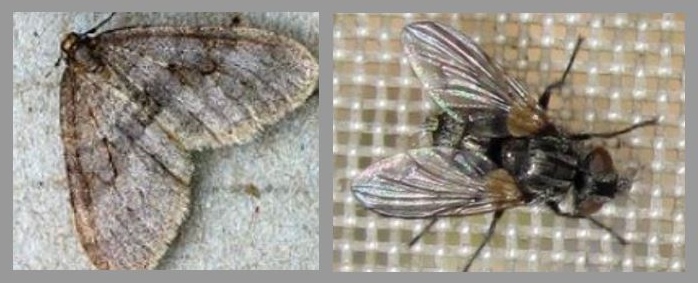
SOUTH PORTLAND, Maine - Entomologists with the Maine Forest Service released parasitic flies - Cyzenis albicans - on Wednesday to combat winter moth - Operophtera brumata - last fall.
The flies were buried as cocoons in a cage, and the adults, which recently emerged, were released into the forest as part of a larger effort to control winter moth across New England.
The flies were released on Highland Avenue in South Portland.
Adult parasitic flies are attracted to oak leaves damaged by winter moth, and will lay their eggs on leaves where they will be eaten by the caterpillars. The fly eggs will hatch only in the gut of winter moth caterpillars, parasitizing them. They have been successfully used as a control strategy in Nova Scotia, parts of western Canada and the United States as well in southern New England.
Both the winter moth and their parasites are originally from Europe. Winter moth defoliation was first recorded in Maine in 2012 and now the moths have been detected from Kittery to Mount Desert Island. The winter moth caterpillars feed on the leaves of deciduous trees and shrubs such as oaks, maples, apples and blueberries, in early spring. Heavy defoliation for several consecutive years leads to branch dieback and tree mortality.
Winter moth defoliation has contributed to tens of thousands of acres of oak mortality in Massachusetts and now there is oak mortality in Cape Elizabeth.
This release is part of a larger program, undertaken in conjunction with the University of Massachusetts, with funding from the U.S. Department of Agriculture's Forest Service to control the winter moth across New England. Flies have been released in five other locations in south coastal Maine starting in 2013 and are starting to become established in Kittery and Cape Elizabeth.
In many locations in Massachusetts, where the flies have been released since 2005, the parasitoid numbers have increased to the point where they are having an impact on the winter moth population.













